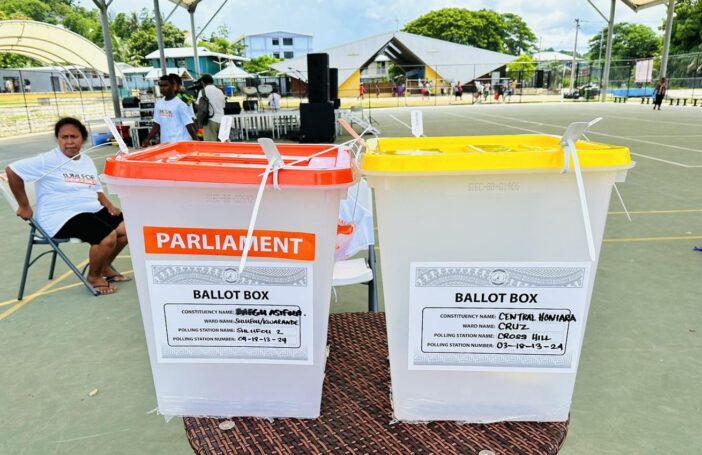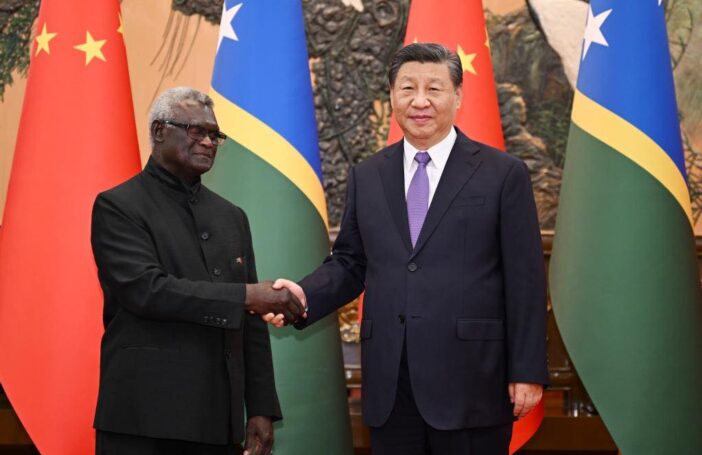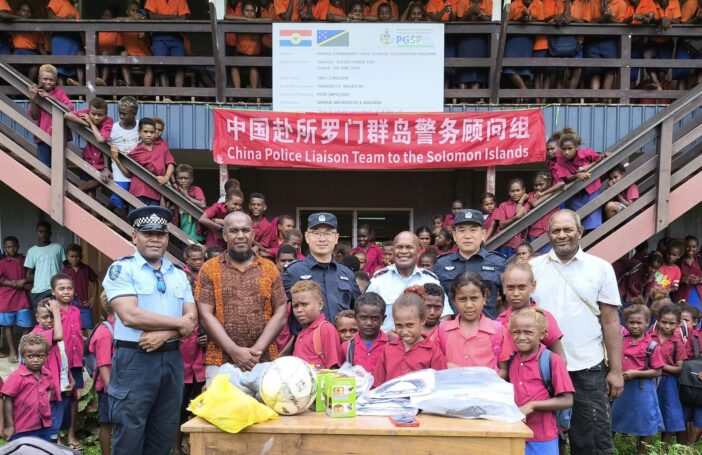You could forgive the average Solomon Islander for wondering whether the only thing that ever gets them attention is war. In World War II their forgotten outpost of the British Empire was engulfed in fighting. Aid and international attention was on the wane in the 1990s but this all changed when the Solomons burst into flames. And now there is the New Cold War, which has sent China, Australia and other western powers stumbling around the Pacific like drunken chess pieces. Right now, China and Australia are busy glowering, facing each other down in Solomon Islands.
Amidst this standoff, Solomon Islands is about to have an election.
Since the resolution of its own civil conflict in the early 2000s, Solomon Islands has – in an under-recognised Pacific success story – run its elections pretty well. Effective Australian aid, good staff at the electoral commission and community commitment can take the credit for this. There are still problems – vote buying, other attempts by candidates to cheat (often unsuccessful) and occasional localised violence – but overall electoral quality is quite high.
Although some Australian pundits have been making frightening predictions that China will help the current prime minister – Manasseh Sogavare – quash democracy in his country, this is unlikely. It’s true Sogavare is no democrat: he first came to power in 2000 in a police coup. But sanctions and aid cuts would give him pause for thought about becoming a dictator. And even if he didn’t pause for thought, his political allies would baulk at the idea of being relegated from MPs in a coalition to underlings. On top of that, China doesn’t actually have the resources in the Solomons to impose much. And if it brought those resources in, in what would effectively be an invasion, it would find itself resisted by a very restive populace, not to mention condemned the world over: this would not be in its interest.
My inner political scientist is opposed to ever making predictions about anything to do with elections in the Western Pacific, but my guess is that in Solomon Islands this year the electoral process itself will be alright. Imperfect but alright. It’s very unlikely that the country will emerge from the elections a dictatorship.
That’s not the end of the story though. There will also be the post-election horse-trading amongst MPs hopping between Honiara hotels that leads to the selection of the prime minister, and the public reaction to this opaque and unaccountable process.
When Sogavare was selected as prime minister in 2019, young men marched on parliament chanting “we need change”. Their protest was a genuine reflection of frustration at the return of a man they saw as the embodiment of a corrupt elite that perennially failed to bring opportunities for ordinary people. The protests subsequently exploded, as they usually do in Honiara, into rioting and looting.
If Sogavare becomes prime minister again, something similar is entirely possible. Perhaps Sogavare is more popular now because of the Pacific Games but I would be surprised if that goodwill has trickled down to the marginalised young men of Honiara’s settlements. Possibly getting the Solomon Islands Police Force out in advance will prevent rioting. Maybe Sogavare’s hope is that Chinese police will quell rioting, or that threats of requests to China for police assistance will spur rapid Australian assistance in the event of a riot.
Whether Sogavare emerges as prime minister or not also has other ramifications. Although it’s a mistake to imagine that individuals are particularly important in the fluid dynamics and easily broken allegiances of Solomon Islands politics, leaders aren’t completely irrelevant. Different prime ministers bring different styles and beliefs, and although they can never escape the need to shore up their government by buying off wavering MPs, some prime ministers govern better than others. And, of course, there’s the issue of geopolitics. It’s unlikely that, even if someone else emerges as prime minister, Solomons will spurn China’s courtship entirely, but some other politicians would be more cautious of China’s embrace if they got the top job.
In sum, the quality of the 2024 elections in Solomon Islands will likely be OK, but amidst urban frustration, problems of political governance, and the tensions of the New Cold War, it’s not just electoral quality that will matter: outcomes will be important too.
So will Sogavare become prime minister again? I’ll see what the data have to say about that in my next post.
This is the first post in a three-part series on the Solomon Islands elections.




